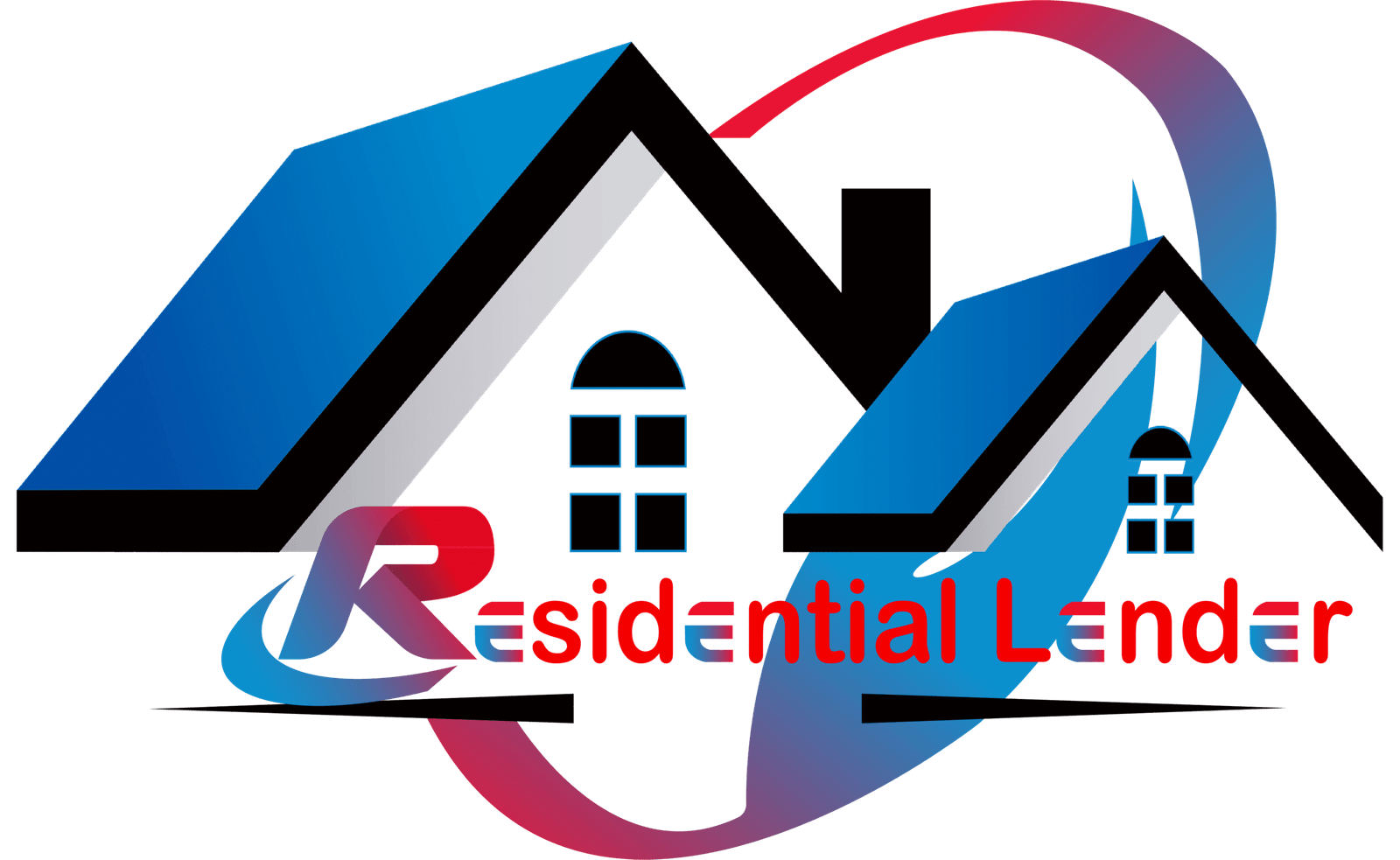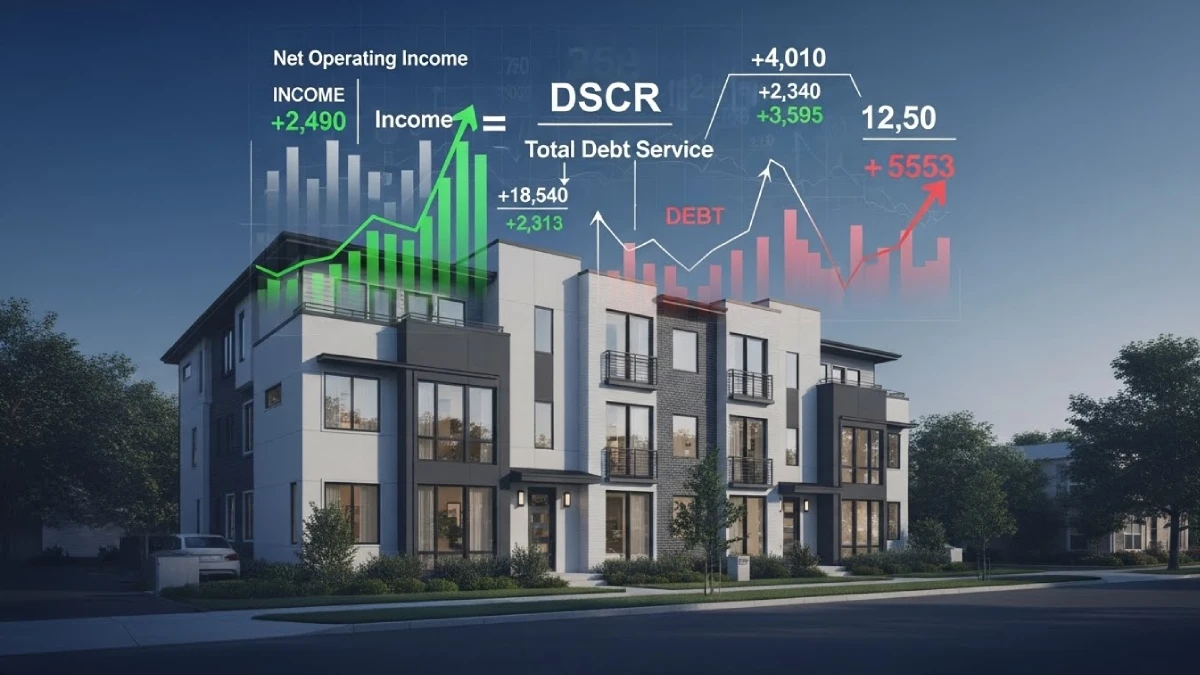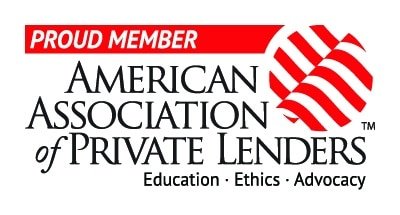It can be challenging for first-time real estate investors to secure loans for investment in real estate, as traditional banks typically require larger down payments (20–25% or more) and credit scores of 740 or higher. You might miss out on deals that need to be done quickly because the underwriting and finishing processes can be slow. Not only that, but traditional loans cost more than loans for main homes.
Traditional financing is slow and strict, making it difficult for real estate owners to secure quick deals, such as fix and flip or fix and stay. Banks have strict rules and lengthy approval processes for loans, which can make it hard to compete in hot markets or buy homes that are in bad shape.
“Hard money lenders for first-time investors” can make it easier and faster for you to get the money you need for your first deal. They decide based on how much the house is worth, not your credit score. This blog provides comprehensive information on hard money loans, key considerations for investors, and strategies for selecting the ideal business partner for your first venture.
What Exactly is a Hard Money Loan and Why Do First-Time Investors Need One?
A hard money loan is a short-term loan based on an asset. Real estate buyers are the primary recipients of these loans. A private lender doesn’t look at your credit score. Instead, they look at the value of the property you want to buy and use that as protection. This is a significant difference from traditional banks, which consider your entire financial history, including your credit score, income, and debt-to-income ratio.
How They Differ from Traditional Banks:
- Speed: These loans are for hard cash, and they are paid off in days or weeks instead of months. It’s ideal for markets with intense competition. It deals that require swift closure, where a standard 30- to 60-day closing period would result in missing out on the opportunity.
- Flexibility: The loan terms and standards are less strict with hard money lenders. Since they are private people or businesses, they can often tailor the loan to better fit the needs of the deal than banks, which have rigid, standard loan products.
- Asset-Based: Having the property as collateral for the loan makes it easier for new owners who may not have perfect credit or a history of making good real estate deals. The lender’s primary concern is the property’s achievable value (ARV) and its potential to generate a profit.
Key Benefits for First-Time Investors:
- Quick access to capital for a time-sensitive investment property.
- Less emphasis on personal finances and more on the property’s potential.
- Ideal for “fix-and-flip” and “fix-and-hold” projects where you need a quick bridge loan to purchase and renovate a property before refinancing or selling it. Hard money loans are structured to provide the necessary funds to buy the property and, in many cases, cover the costs of renovation.
The Crucial Factors to Consider When Choosing Hard Money Lenders for First-Time Investors
Getting a loan from the wrong person can ruin a good deal when you’re new to real estate investment. One of the most important things you’ll do is pick the right hard money loan. Pay attention to these things:
Rates and Terms: It’s More Than Just the Interest Rate
While the interest rate is a key component, you need to look at the whole picture of the loan terms.
- Interest Rates: Hard money loans typically have higher interest rates than traditional loans, often ranging from 8% to 15%. This is because they are short-term, and the lender takes on more risk. The speed and convenience, however, often outweigh this higher cost.
- Points: What are “points”? Points are origination fees paid upfront to the lender for their work in preparing and underwriting the loan. Each point is equal to one percent of the loan amount. For example, on a $100,000 loan, one point would be a $1,000 fee.
- Loan-to-Value (LTV) Ratio: A critical factor, the LTV is the percentage of the property’s value that the lender is willing to finance. For example, a 70% LTV means the lender will finance up to 70% of the property’s value, and you, the borrower, will be responsible for the remaining 30% as a down payment. Some lenders calculate LTV based on the current value. In contrast, others use the after-repair value (ARV), which can impact the amount of money you need to bring to the table.
- Loan Term: The duration of the loan. Hard money loans are short-term, typically lasting 6 to 24 months. They serve as a bridge to help you quickly purchase and renovate a property, rather than providing a long-term solution for a rental property. Your exit strategy (e.g., selling the property or refinancing with a traditional loan) should align with the loan term.
The Lender’s Experience and Reputation
A hard money lender is more than a bank; they are a partner in your investment. Their experience can be a tremendous asset, especially for a first-time investor.
- Why Experience Matters: An experienced hard money lender knows the market, understands the nuances of different real estate investment strategies, and can offer valuable insights. They can help you spot potential red flags in a deal and provide guidance on your project plan.
- How to vet a lender: Look at their portfolio to see the types of projects they have successfully funded. Read online reviews and testimonials from other real estate investors. A reputable lender should be transparent about their track record and willing to provide references from past borrowers.
The Lender’s Process: From Application to Closing
The entire process with a hard money lender is designed for speed and efficiency.
- Documentation: Hard money lenders don’t require the mountain of paperwork that a traditional bank does. Instead of focusing on your credit history, they’ll primarily ask for details about the property, your business plan, and your exit strategy. This may include a detailed budget for renovations, a purchase agreement, and an appraisal.
- Underwriting: Unlike the automated, bureaucratic underwriting process of a bank, hard money lenders have a more common-sense approach. They’re focused on the collateral (the property) and your ability to execute the deal. With 30 years of underwriting experience, our expertise allows us to quickly evaluate the merits of your deal and provide a fast decision.
- Closing Speed: This is a key differentiator. While a traditional loan can take weeks or even months to close, hard money loans can often close in as little as 7 to 14 days, and in some cases, even faster. Always ask a potential lender about their average closing time.
Our Loan Products for First-Time Investors
It is just as important to find the right loan package as it is to find the right property. We offer various types of hard money loans to meet the needs of first-time buyers.
- Fix-and-Flip Loans: What we do best. These loans are designed for investors looking to purchase a distressed house, renovate it, and resell it quickly for a profit. We can soon fund the down payment on the house and, in many cases, also cover some of the costs of fixing it up.
- Bridge Loans: For investors needing to close a deal quickly, whether they’re awaiting long-term financing or waiting for another property to sell, these loans offer a great choice. Bridge loans are a quick way to get cash to “bridge the gap” between two deals.
- DSCR Loans: Our DSCR (Debt Service Coverage Ratio) loans offer a unique financing solution for owners of rental properties seeking the funds they need. We don’t look at your personal income or tax records to decide if you’re qualified. Instead, we look at how much money the property can make to pay off its debt. If the DSCR is 1.25, for example, it means that the property’s income is 25% higher than its debt payments. This is a strong sign that the property is a good investment.
- Construction Loans: Our construction loans can help you get the money you need for your first project, whether it’s a new build or a big renovation. The money from these loans is sent to you in stages, or “draws,” as different parts of the project are finished. This way, you’ll always have the money you need when you need it.
- Lite-Doc & No-Doc Loans: Our Lite-Doc (limited documentation) and No-Doc (no documentation) loan choices make the application process easier for investors who want to keep their financial records to a minimum. The focus is on the value of the property and your business plan instead of your extensive personal financial records.
- Other Options: We also offer flexible lending for a range of investment situations, such as state income loans, mixed-use properties, and multifamily units.
How to Prepare for Your First Hard Money Loan Application
While hard money loans are known for their speed and flexibility, a well-prepared application is your key to a seamless process. Lenders, even hard money lenders, need to feel confident in your ability to succeed. Here’s how to put your best foot forward:
Build Your Investment Case
Even if you are a first-time investor, you can demonstrate your seriousness and competence. Your application should tell a clear story of your investment.
- Show the Lender Your Plan: Create a concise yet comprehensive business plan for the land. Describe your experience (or lack of it), present your team members (like your real estate agent and contractor), and lay out your plan for how you will leave the business. Are you going to fix it up and sell it quickly? Will you keep it as a rental and refinance it later (fix-and-hold)? Making a clear and well-thought-out plan shows that you did your job.
Analyze the Investment Property
Hard money lenders are primarily interested in the property’s potential. You need to know the numbers inside and out.
- After-Repair Value (ARV): The ARV is the estimated value of the property after all renovations are complete. The lender will use this number to determine the maximum loan amount they are willing to offer. Be prepared to back up your ARV with comparable sales from the area.
- Repair Costs: Provide a detailed and realistic budget for all planned renovations. This should include everything from materials to labor. Having bids from contractors and a clear scope of work demonstrates that you have a firm grasp of the project’s financial requirements.
- Holding Costs: Don’t forget to factor in the costs of keeping the property, such as taxes, insurance, utilities, and loan interest payments. Showing that you have a plan for these expenses reassures the lender that you are a serious and responsible investor.
Gather Your Documents
Being prepared with the necessary documentation shows you are a serious real estate investor and helps to accelerate the underwriting process. While requirements vary by lender, you should be prepared with:
- Property Details: A copy of the purchase contract, an appraisal or Broker’s Price Opinion, and photos of the property.
- Your Plan: A detailed scope of work, renovation budget, and a clear exit strategy.
- Personal Information: Even though hard money lenders are primarily interested in the property, they may still need to see some personal financial papers. You may need to provide bank statements to demonstrate that you have sufficient funds for the down payment and any associated holding costs. Sometimes, a resume will be asked to highlight related experience.
Why ResidentialLender.Net is the Perfect Partner for First-Time Investors
As a first-time investor, you need more than just a loan; you need a partner who can guide you through the process and help you succeed. ResidentialLender.Net is uniquely positioned to be that partner.
Our Experience
We’ve been in the game for 30 years as an “underwriter.” This means we have a deep understanding of the entire lending process, from initial application to final closing. We’ve seen countless deals, both successful and unsuccessful, and we use that knowledge to evaluate your project with an expert eye. Our experience allows us to streamline the process, identify potential roadblocks before they become problems, and offer you the most efficient path to securing your financing.
Our Network
We are a “table and correspondent lender” with a vast network of over 200 private lenders and investors. This gives us the power to find the right solution for you. We don’t have to force your deal into a limited box of loan products like a traditional bank might. Instead, we can tap into our extensive network to match your specific needs with the perfect funding source, ensuring you get the best possible rates and terms for your project.
Our Philosophy
We believe in partnership. We don’t just offer money; we offer expert financial consulting to help you succeed in your first real estate investment. Our goal is to see you succeed, not just in this deal but in your entire real estate journey. We’ll be with you every step of the way, providing insights, answering questions, and helping you navigate the complexities of your first venture.
Exclusive Referral Programs
We also offer exclusive referral programs for brokers, both new and experienced. Our non-exclusive program allows brokers to introduce us to clients for a referral fee. In contrast, our exclusive program gives dedicated partners a more significant role and a deeper level of collaboration on future deals. This model not only expands our reach but also ensures we are always connected with the most promising deals and the best talent in the industry.
Common Questions First-Time Investors Ask About Hard Money Lenders
It’s natural to have questions when you’re exploring a new financial product. Here are some of the most common questions first-time investors ask about hard money lending, with clear and concise answers.
Can I get a hard money loan with bad credit?
Yes. One of the main advantages of a hard money loan for real estate is that it is asset-based, not credit-based. While a lender may still review your credit report, the primary factors in their decision are the value of the property and your plan for the project. This makes hard money an ideal solution for investors who may not meet the rigid credit score requirements of a traditional bank.
What if the project takes longer than expected?
This is a valid concern, as renovation projects can often have unforeseen delays. The possibility of a project taking longer than the loan term is why it’s crucial to work with a flexible lender. Many hard money lenders offer the option for a loan extension, but this typically comes with an additional fee. You should discuss the lender’s policy on extensions before signing the loan agreement, so you know your options in a worst-case scenario.
Is a hard money loan always a short-term solution?
Yes. Hard money loans are specifically designed for short-term projects, typically lasting from 6 to 24 months. The high interest rates make them unsuitable for long-term financing. They are meant to be a bridge to get you to your exit strategy, whether that’s selling the property or refinancing with a long-term conventional loan.
What’s the difference between a hard money loan and a bridge loan?
A bridge loan is a hard money loan. A hard money loan is the general term for a short-term, asset-based loan. A bridge loan is a specific type of hard money loan that is used to “bridge” the gap between two financial events, such as purchasing a new property before selling an existing one. While all bridge loans are hard money loans, not all hard money loans are considered bridge loans.
Why not just use a traditional bank?
There are several reasons why a traditional bank might not be the best option for a real estate investment, especially for a first-time investor. The primary reasons are speed, flexibility, and eligibility. Traditional banks have a slow and rigorous approval process that can take months, causing you to miss out on time-sensitive deals. They also have strict requirements for credit, income, and debt-to-income ratios. Hard money lenders, on the other hand, prioritize the property’s value, making financing more accessible and faster for a broader range of investors.
Conclusion
You’ve learned how a hard money lender can be the perfect partner for your first real estate investment project. From understanding how hard money loans work to knowing what to look for in a private lender, you’re now equipped with the knowledge you need to take the next step. Hard money offers the speed and flexibility that traditional bank loans lack, making it an ideal tool for securing a deal in a competitive market.
At ResidentialLender.Net, we’re not just a lender; we’re your partner in success. With our 30 years of underwriting experience and a vast network of over 200 private lenders and investors, we have the resources to help you acquire your first investment property and guide you toward a successful exit.
Don’t let financing challenges stop your dream of becoming a real estate investor. Contact us today to discuss your project and discover the right financing option for you.
FAQs
What is the typical down payment required for a hard money loan?
Hard money lenders typically require a much larger down payment than traditional lenders. While a conventional loan may only need 3% to 5% down, a hard money loan often requires a down payment of 20% to 30% or even more. The exact amount depends on the lender’s loan-to-value (LTV) ratio and the specific details of the property and the deal.
How do hard money lenders verify my ability to repay the loan?
Even though hard money loans are asset-based, lenders still want to be sure you can make the monthly payments. Unlike traditional banks that require extensive income verification through tax returns and pay stubs, hard money lenders may simply look at your bank statements to confirm that you have sufficient reserves to cover the loan payments and holding costs for the project’s duration.
Are there any prepayment penalties with hard money loans?
Yes, many hard money loans include a prepayment penalty. Because these loans are short-term, lenders often include this clause to ensure they earn a minimum amount of interest on the loan. It’s essential to ask about any prepayment penalties before signing the loan agreement, as it could impact your profit if you finish the project and sell the property sooner than expected.
Is a hard money loan the same as a private money loan?
While the terms are often used interchangeably, there’s a subtle difference. A hard money lender is typically a business or a group of professional investors with a structured and standardized process. A private money lender is often an individual, a family member, or a friend who is lending their funds. The terms and interest rates of a private money loan are usually more flexible and negotiable. In contrast, a hard money loan is more formal and based on a pre-defined set of criteria.
Can a hard money loan be used for an owner-occupied property?
Hard money loans are primarily designed for investment properties. Due to federal and state regulations, it is much more challenging to use a hard money loan for a property you intend to live in. Hard money lenders are not bound by the same strict consumer protection laws as traditional mortgage lenders, so they typically only lend on non-owner-occupied real estate.








